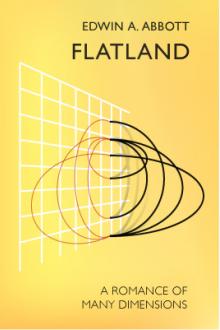Lorna Doone: A Romance of Exmoor, R. D. Blackmore [websites to read books for free txt] 📗

- Author: R. D. Blackmore
Book online «Lorna Doone: A Romance of Exmoor, R. D. Blackmore [websites to read books for free txt] 📗». Author R. D. Blackmore
I will not deceive any one, by saying that Sir Ensor Doone gave (in so many words) his consent to my resolve about Lorna. This he never did, except by his speech last written down; from which as he mentioned grandchildren, a lawyer perhaps might have argued it. Not but what he may have meant to bestow on us his blessing; only that he died next day, without taking the trouble to do it.
He called indeed for his box of snuff, which was a very high thing to take; and which he never took without being in very good humour, at least for him. And though it would not go up his nostrils, through the failure of his breath, he was pleased to have it there, and not to think of dying.
'Will your honour have it wiped?' I asked him very softly, for the brown appearance of it spoiled (to my idea) his white mostacchio; but he seemed to shake his head; and I thought it kept his spirits up. I had never before seen any one do, what all of us have to do some day; and it greatly kept my spirits down, although it did not so very much frighten me.
For it takes a man but a little while, his instinct being of death perhaps, at least as much as of life (which accounts for his slaying his fellow men so, and every other creature), it does not take a man very long to enter into another man's death, and bring his own mood to suit it. He knows that his own is sure to come; and nature is fond of the practice. Hence it came to pass that I, after easing my mother's fears, and seeing a little to business, returned (as if drawn by a polar needle) to the death-bed of Sir Ensor.
There was some little confusion, people wanting to get away, and people trying to come in, from downright curiosity (of all things the most hateful), and others making great to-do, and talking of their own time to come, telling their own age, and so on. But every one seemed to think, or feel, that I had a right to be there; because the women took that view of it. As for Carver and Counsellor, they were minding their own affairs, so as to win the succession; and never found it in their business (at least so long as I was there) to come near the dying man.
He, for his part, never asked for any one to come near him, not even a priest, nor a monk or friar; but seemed to be going his own way, peaceful, and well contented. Only the chief of the women said that from his face she believed and knew that he liked to have me at one side of his bed, and Lorna upon the other. An hour or two ere the old man died, when only we two were with him, he looked at us both very dimly and softly, as if he wished to do something for us, but had left it now too late. Lorna hoped that he wanted to bless us; but he only frowned at that, and let his hand drop downward, and crooked one knotted finger.
'He wants something out of the bed, dear,' Lorna whispered to me; 'see what it is, upon your side, there.'
I followed the bent of his poor shrunken hand, and sought among the pilings; and there I felt something hard and sharp, and drew it forth and gave it to him. It flashed, like the spray of a fountain upon us, in the dark winter of the room. He could not take it in his hand, but let it hang, as daisies do; only making Lorna see that he meant her to have it.
'Why, it is my glass necklace!' Lorna cried, in great surprise; 'my necklace he always promised me; and from which you have got the ring, John. But grandfather kept it, because the children wanted to pull it from my neck. May I have it now, dear grandfather? Not unless you wish, dear.'
Darling Lorna wept again, because the old man could not tell her (except by one very feeble nod) that she was doing what he wished. Then she gave to me the trinket, for the sake of safety; and I stowed it in my breast. He seemed to me to follow this, and to be well content with it.
Before Sir Ensor Doone was buried, the greatest frost of the century had set in, with its iron hand, and step of stone, on everything. How it came is not my business, nor can I explain it; because I never have watched the skies; as people now begin to do, when the ground is not to their liking. Though of all this I know nothing, and less than nothing I may say (because I ought to know something); I can hear what people tell me; and I can see before my eyes.
The strong men broke three good pickaxes, ere they got through the hard brown sod, streaked with little maps of gray where old Sir Ensor was to lie, upon his back, awaiting the darkness of the Judgment-day. It was in the little chapel-yard; I will not tell the name of it; because we are now such Protestants, that I might do it an evil turn; only it was the little place where Lorna's Aunt Sabina lay.
Here was I, remaining long, with a little curiosity; because some people told me plainly that I must be damned for ever by a Papist funeral; and here came Lorna, scarcely breathing through the thick of stuff around her, yet with all her little breath steaming on the air, like frost.
I stood apart from the ceremony, in which of course I was not entitled, either by birth or religion, to bear any portion; and indeed it would have been wiser in me to have kept away altogether; for now there was no one to protect me among those wild and lawless men; and both Carver and the Counsellor had vowed a fearful vengeance on me, as I heard from Gwenny. They had not dared to meddle with me while the chief lay dying; nor was it in their policy, for a short time after that, to endanger their succession by an open breach with Lorna, whose tender age and beauty held so many of the youths in thrall.
The ancient outlaw's funeral was a grand and moving sight; more perhaps from the sense of contrast than from that of fitness. To see those dark and mighty men, inured to all of sin and crime, reckless both of man and God, yet now with heads devoutly bent, clasped hands, and downcast eyes, following the long black coffin of their common ancestor, to the place where they must join him when their sum of ill was done; and to see the feeble priest chanting, over the dead form, words the living would have laughed at, sprinkling with his little broom drops that could not purify; while the children, robed in white, swung their smoking censers slowly over the cold and twilight grave; and after seeing all, to ask, with a shudder unexpressed, 'Is this the end that God intended for a man so proud and strong?'
Not a tear was shed upon him, except from the sweetest of all sweet eyes; not a sigh pursued him home. Except in hot anger, his life had been cold, and bitter, and distant; and now a week had exhausted all the sorrow of those around him, a grief flowing less from affection than fear. Aged men will show his tombstone; mothers haste with their infants by it; children shrink from the name upon it, until in time his history shall lapse and be forgotten by all except the great Judge and God.
After all was over, I strode across the





Comments (0)